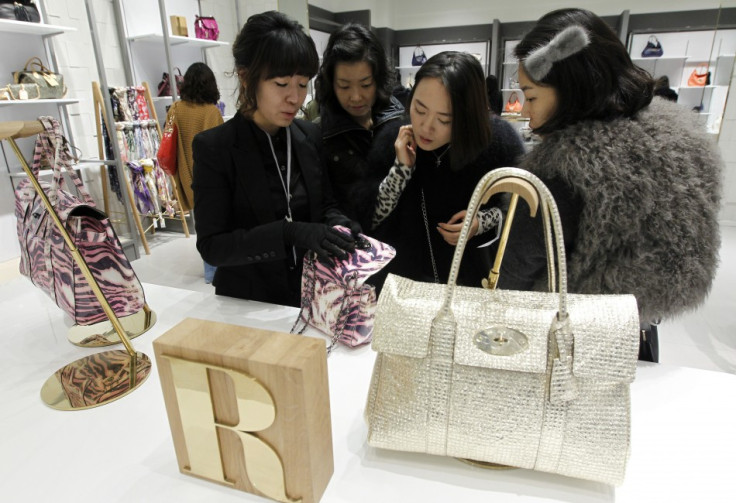Luxury Brand Sales Surge in Face of Unstable Economic Times

British luxury brands experienced strong sales in 2011 despite facing a double-dip recession and the worst unemployment in 17 years.
British luxury retailer Burberry recently announced a 21 percent increase in revenue for 2011, pushing total revenue for the year to £574m, up from £480m the previous year.
Camilla Nightingale, director of e-commerce and direct sales at luxury leather goods company Smythson, said customers were still shopping for luxury goods but they were "discerning sales". "We continue to see customers looking for quality, appreciating quality and uniqueness in design."
Nightingale said luxury e-retail was growing and that online shopping was a "very interesting proposition" for the luxury consumer.
"They're often time-poor, they want the convenience and delivery is important - they want it quickly, they want it at their convenience, at their time."
She said that while many people were affected by recession, customers would always demand high-end products. "The luxury consumer who is looking for quality will always look for quality. I'm not saying they don't want a discount as well or a bargain but their No 1 driver is going to be quality and all of the attributes that that brings with it.
"You'll have the core luxury consumers that will contract and expand marginally depending on the [economic] situation at the time. But when the world is in a bull market you're going to get many, many more aspirational people coming in and saying 'right now I can afford something in luxury so I'm going to do it'".
She saidf many British luxury brands had succeeded because of their global consumers. The UK luxury market on its own was.
Chris Webster, head of retail and vice-president of Capgemini, said the luxury market was "globalised" and that brands capitalised on having international customers. "While Western economies have been having a tough time some of the other markets, particularly in Asia with China being the obvious example, have continued to grow. So a global brand, particularly a British brand, appeals very heavily to those markets," he said.
A "global travelling consumer" was also becoming more widespread, he added. "A large portion of [luxury] sales comes from Chinese people visiting London, who are going into the stores and buying."
Webster agreed with the notion that during recession, some people treated themselves to luxury. "You treat yourself in the exception while making the compromises and making savings across the large portion of your spending. But every now and again you just need to do something special. And that helps the luxury brands. It makes you feel good about yourself even when, overall, things aren't that great."
John Ayton, owner of fine jewellery company Annoushka and director of luxury retail thinktank Walpole, said it was important to remember that luxury sales in London were far stronger than the rest of the country because this was where most visitors went and spent their money.
He said luxury brands tended to remain stable through recession because they have the advantage of a strong brand and international recognition.
"The luxury consumer is probably buying fewer pieces but spending more on the pieces that they buy. People are investing in quality and what they know," he said.
British luxury brands were experiencing a resurgence, said Ayton, and with the the Queen's Diamond Jubilee and Olympic Games were restoring confidence and pride in UK brands.
Webster predicted continued growth in luxury retail in 2012, with the wealthy continuing to purchase goods because they retain the "spending power".
"Luxury will continue to be sound," said Nightingale. "I don't think it'll be a boom year but it'll be a positive year. We'll have to wait and see."
© Copyright IBTimes 2025. All rights reserved.





















